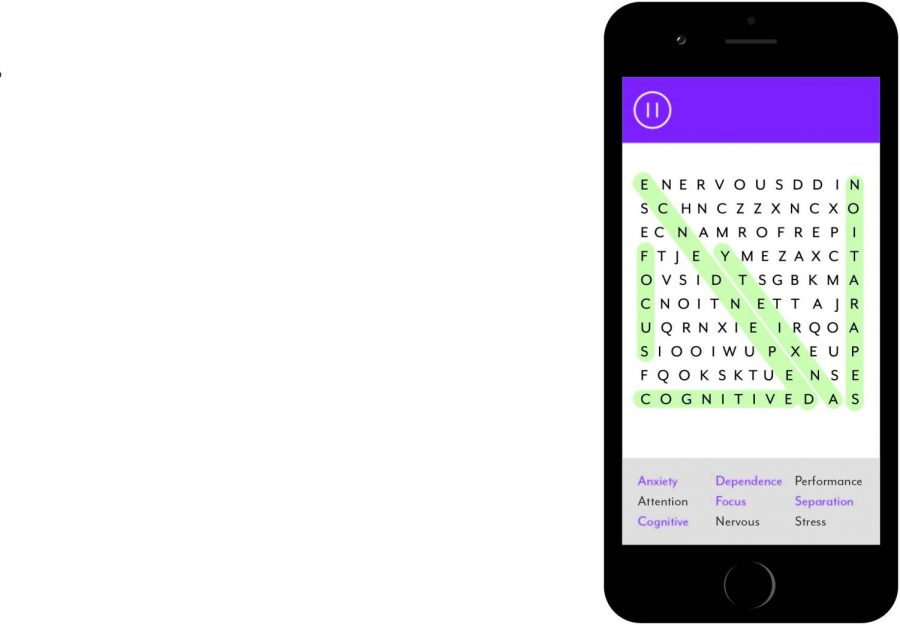iPhone separation anxiety found in college students
iPhone Anxiety
January 26, 2015
Being separated from a ringing iPhone can lead to symptoms of physiological anxiety , as well as decreased cognitive performance, according to a study published Jan. 7 in the Journal of Computer-Mediated Communication.
Researchers at the University of Missouri conducted the study on 40 students ages 18—24. Scientists told participants they were testing a new wireless blood pressure monitor. While hooked up to the monitors, subjects completed word search puzzles as a control. Researchers then told the students that their iPhone Bluetooth technology was causing interference with the monitors and moved the smartphones out of their reach. Researchers called the phones while the students completed a similar word search.
“When they had their phone, their performance on their task was fine and their blood pressure and heart rate was at what their baseline was,” said Glenn Leshner, a University of Missouri journalism professor and co-author of the study. “When they were separated from their phone and it rang, their heart rate increased, their blood pressure increased and their performance on the task went down.”
According to Leshner, this study was the first to establish scientific proof of the physiological effects of being separated from a ringing phone.
“There’s been some research on iPhone separation [and the] emotional and physical attachments that people have, and it’s been associated with greater feelings of anxiety when users are distanced from their phones,” Leshner said. “All of that research was self-reported, and we showed actual physical responses to that separation.”
Leshner said he was surprised at the consistency of the results, as there were vivid physiological and cognitive effects amongst a vast majority of participants.
“We also had some self-reports of anxiety and feelings of negativity and also this idea of the phone becoming a part of them, and all of that was in the direction of iPhone separation anxiety,” Leshner said. “These effect sizes were not only consistent and robust, but they were fairly large.”
Researchers believe the results of the study demonstrate more than an attachment to mobile devices. Some theories presented in the study include a fear of not having a mobile phone, called “nomophobia,” as well as the Extended Self Theory. The theory states that one’s possessions can unconsciously become an extension of one’s self because one can control a phone like one controls a limb, according to the study.
“When you take away part of that and you remind them of it—which is what the ringing does— it’s a threat to self and to their identity,” Leshner said. “One of the issues is whether the ringing caused distraction and that caused the decrease in cognitive performance, but we don’t really think that’s a full explanation because that doesn’t explain the physiological responses that they had when they were separated [from the phones].”
Researchers speculate that students could experience similar cognitive deficits in school environments.
“I would suggest people turn their phones off when engaging in something cognitively demanding,” Leshner said.
The symptoms of physiological anxiety and decreased cognitive performance students experienced could also be attributed to iPhones being unconsciously used as a means of staying connected socially rather than a technological device, according to Pamela Rutledge, the director of the Media Psychology Research Center.
“An iPhone is a portal to their social life,” Rutledge said. “It isn’t really about the phone per se; it’s about what it represents, which is the connection to friends [and] family. [The study pointed out that] people being cut off from their social environments is anxiety-provoking, but we’ve known that all along. That’s why the Catholic Church excommunicates people. It’s why we give small children timeouts—because being connected socially is one of the primary drivers for a human being, both psychologically and physiologically.”
Rutledge stressed that the study’s findings do not demonstrate an attachment to devices as much as a lack of understanding of technology’s role in our lives.
“[The researchers are] just measuring technology and interpreting it as these people can’t stand to be without their technology,” Rutledge said. “We need to make people aware of the role that technology plays and where that works for us and where that works against us so people can make choices about how they want to use technology.”
Junior radio major Shane Riordan said that while he does not consider himself attached to his phone, he experiences anxiety when missing a call in certain cirumstances.
“If I’m in a conversation with someone, whether it be text or expecting a phone call, and I put the phone down and I go somewhere else and I hear it go off, then I’m not anxious because I know this is the proper response time,” Riordan said. “If I’m not in a conversation with somebody or multiple beeps go off in a row, I’ll feel anxious because I know there’s something that I’m not expecting. [Your phone is] how you find out what’s going on.”








